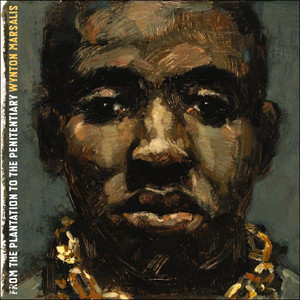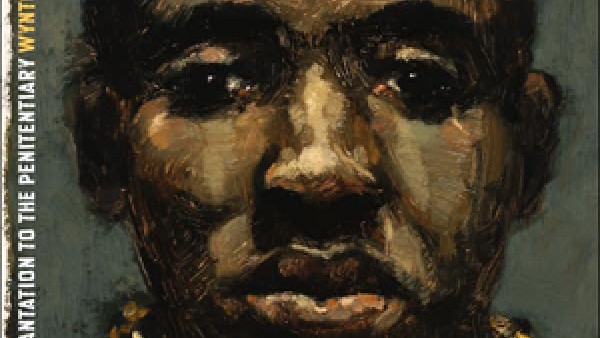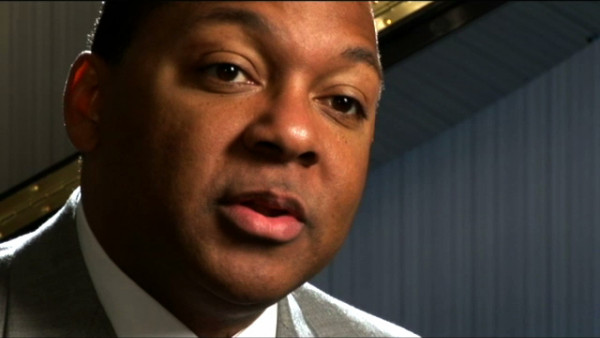Marsalis wields sharp blade in ‘Plantation’
As the most high-profile jazz artist and advocate of the past 25 years, Wynton Marsalis has become more widely quoted than any other jazz performer of his generation. Even so, the Pulitzer Prize-winning composer and trumpeter sounded shocked when recently asked about the distinctive drum sound on “Doin’ (Y)Our Thing,” a standout song on “From the Plantation to the Penitentiary,” his new album.
“I would never get asked a question like that. Because, first, it’s about the music, and that’s not what’s being asked about this album,” Marsalis said.
No, it isn’t. But that’s hardly surprising given the provocative subject matter addressed on “Plantation,” for which he wrote all of the lyrics himself.
The album, due out Tuesday on Blue Note Records, is already being hailed and attacked as the most controversial work of Marsalis’ career. The topics he covers on the seven-song release include blind consumerism and the misogyny and violent imagery in pop music and hip-hop, which he regards as an especially demeaning form of contemporary minstrelsy. Other songs blast corrupt political leaders, the state of our increasingly polarized nation and the modern manifestations of slavery.
“I did an interview in England recently, and they wanted to know what I liked about hip-hop,” Marsalis said, speaking by phone from his Manhattan apartment overlooking Lincoln Center. “And if you answer that you don’t like it, you have to answer a bunch of other questions. When they write that article, it will be pro hip-hop.
“Here in the United States, most people are asking me something about why am I talking about these topics, or (telling me) that it’s different from what I’ve been doing. I told them I don’t perceive it that way. . . . I’ve been frustrated with the state of the nation and the culture since high school, and I’ve been pretty clear about it all these years.”
The lyrics on “Plantation” are sung mostly by Jennifer Sanon, 21, who has worked with Marsalis periodically over the past three years. The trumpeter himself contributes the chant-like vocals to the song “Where Y’All At?”
The sometimes blunt messages conveyed are all Marsalis’, which may surprise those listeners used to hearing him in the all-instrumental format he has favored almost exclusively since the early 1980s.
Equally striking is the painting on the cover of “Plantation,” which shows a young African-American man whose gold neck chain seems to represent both a lust for bling and a shackle that can’t be broken.
“It’s not even a matter of an artist speaking out, but of people in general,” said Marsalis, who in 1997 became the first jazz artist to win a Pulitzer Prize. “You’re entitled to your opinion, and to voice it. That’s what makes this country different from others: It was founded on our ability to do that.”
An articulate champion for American culture, Marsalis in 1984 became the first artist to ever win Grammy Awards simultaneously for both jazz and classical albums. He held nothing back in his acceptance speech, saying: “I’d like to thank the great masters of American music – Charlie Parker, Louis Armstrong and Thelonious Monk – all the guys who set a precedent in Western art and gave an art form to the American people that can’t be limited by enforced trends or bad taste.”
Marsalis chuckles at the controversy he created as a young jazz star, simply by speaking his mind.
“I was so definitive in my opinions and sometimes I wasn’t as delicate about expressing them,” he said. “I wasn’t runing for office. I was just saying what I thought and I was in the minority. Since I was one of the only ones saying it in the early 1980s, I was an easy target. I got a lot of good publicity, too. When I was young, I was wild. I just said what I wanted to say and didn’t care what anybody thought about it.
“Now, I’m 45; I can’t give the same type of interview I did when I was 19. I don’t play music the same way, I don’t talk the same way. I have kids who are 18, and I’m in different state of life. And the whole racial dynamic of the country has changed over the past 25 years. There’s still a lot of work to be done, but definitely things have changed for the better.”
Marsalis doesn’t make things easy for his fans on “Plantation,” which in addition to Sanon’s vocals features his excellent quintet. It’s a challenging work that is alternately jarring and inviting. Some of his lyrical couplets lack the grace and subtlety of his increasingly eloquent trumpet work, but the album still rewards attentive listening.
The title track is deliberately discordant, while some of the intricate vocal lines and arrangements at first seem like a musical maze waiting to be navigated. The album also juxtaposes Marsalis’ biting lyrics with Sanon’s airy delivery.
“Well, she has a very light, pretty voice and there’s a lot of seriousness and anger (in the album),” he said. “It’s a strange kind of combination of something that’s very sweet, but has an edge. A sweet voice makes the music more striking.”
On the song “Find Me,” Marsalis writes from several points of view, including that of men, women and both the homeless and the affluent, as they observe each other on a city street. Then there’s “Where Y’All At?,” which he wrote following Hurricane Katrina’s devastation of his hometown of New Orleans. The song is an elegy for his beloved Crescent City and a lament about the government bungling that has stalled its recovery.
“That was an interesting thing that happened on American TV after Katrina, with all these people asking: ‘Have you seen so and so?’ ” Marsalis said. “It was like a spiritual return to slavery: ‘Have you seen my grandmother? My father? My uncle?’ ”
The poignancy of the cautiously optimistic “Where Y’All At?” is offset by the scathing “Love and Broken Bones,” a ballad that pines for a return to romance while blasting You thug life coons / You modern day minstrels with your songless tunes.
“Hip-hop came about when I was a young man, so it’s an old form for my kids,” said Marsalis, the father of three teen-aged sons. “They were raised with it and they know, without any question, that I hate it and feel it to be some BS that is reductive for black people. I’m not talking about all of it.
“My sons, through the years since they were kids, I would listen to one of their albums and analyze and talk about it, and they’d have to listen to whatever I chose. One Saturday, I had to listen to 50 Cent’s album. I listened to every song, talked about it and played the vamps from his songs on the piano, because my sons play music on a rudimentary level. I talked about his philosophy and what he said in his songs.”
In turn, Marsalis made his sons listen to Beethoven’s “Hammerklavier” Sonata, John Coltrane and Duke Ellington.
“I picked the highest levels of music,” he said. “Of course, they didn’t enjoy it, but I wanted them to learn the range of music. We’ve had many dialogues, but I don’t expect my kids to not be a part of (contemporary) culture.”
Marsalis, who has never been married, takes fatherhood very seriously. But he was opposed to hip-hop’s emphasis on violence, misogyny and materialism well before he became a single parent, and has long objected to the music’s constant use of the n-word.
“The pathology of somebody getting shot is not entertainment to me,” he said. “Somebody swiping a credit card in a woman’s bottom in a music-video is not entertaining. If you want to insult people, it’s not entertaining. My sons know I feel that way. But I give them latitude to do their thing, because that’s what they’ll do anyway.”
Ultimately, though, Marsalis remains a cautious optimist.
“We have such a rich culture, but when you look at our leadership, we’re very uncultured,” he said. “A lot of times, we act out of our lower selves. But I believe in this country and its ability to do better. We have a great country and a great way of life. We just have to work on it, just like we work on ourselves. And this album is just being a part of that. It’s saying: ‘OK, this is where we are, but can you see where we stand, you and me?’ ”
By George Varga
Source: San Diego Union-Tribune




Comments
You’re right Whitney !
I know it perfectly…every time (since 1994) i’m with Wynton i learn a lot.
Luigi on Mar 14th, 2007 at 5:12pm
Luigi
When you are in New York city and have the opportunity to be around or work with Wynton Marsalis and JALC orchestra
trust me you Learn Alot! you can’t help it! He does it in such a natural way.
Jennifer has matured rapidly since she has been with Wynton. When you sing with a band like that and work with a master as Wynton, trust me you will be greater than what you were.
I learned alot from Wynton I have worked with some greats.
I was able to write the tune WHAT JAZZ IS and I credit Wynton Marsalis for alot of it!
If I were to say anything bad about his new cd because in life there is always a ying and yang. I would say in one of the tunes I could defintely tell when it was live and when it was memorixe (smile)all in the same tune.it seemed part of the mix was done in one day and the other part done a different day. as far as the levels. I would have like to have heard the band a little more. I like the live sound though. But I am being picky
whitney on Mar 9th, 2007 at 8:36pm
I agree with you Whitney.
I love Jennifer voice and way of singing
Luigi on Mar 9th, 2007 at 10:48am
Hi,Whitney, I didn’t realize there was actually an evolution of rap music (and increasingly violent lyrics) but it makes sense now that you mention it.
I also thought of a young Ella Fitzgerald while listening to Jennifer Sanon; striking parallels in their melodious intonation and clear articulation of lyrics. Beautiful and sincere! Good luck with your recording, it can take extra time for it all to come together just right, don’t rush it!
Karen, at the beginning of the video age, I heard a producer state that ‘if women were willing to degrade themselves, then big business may as well make money from it’… There is no reason to “reconcile” anything! This critic is only complying with the media influence, while representing the only aesthetic that he knows, which is pretty limited at best.
gloria on Mar 7th, 2007 at 9:08pm
What’s with this comment, “It’s fogeyism pure and triumphant”, in the Boston Globe, about Wynton’s lyrics referring to Romance? Is it that the human condition of innocence and sweetness is what is being disregarded by this reviewer? Perhaps his taste for consumerism tainted with porn and self-defacement is truly what his aesthetic has become in this age. But what American-myth loving girl or woman doesn’t have these secret yearnings for the chaste promises of “Happily Ever After” that our Disney culture instills in our young dreams with Cinderella and Prince Charming? So how do we reconcile our Disney dreams with the “Modeling” opportunities available to the women these days to booty grind on cars and cameras, where we get to earn the CV credit of “Video Ho”? Does is make me a Fogey or a “dried up Fig” (that’s what Cambridge Press calls our Wynton in it’s “Companion to Jazz”), if I refuse to degrade myself and my art as a dancer by playing a video ho?
Karen on Mar 7th, 2007 at 8:18pm
Sorry folks I am on a roll! Jennifer sings in PITCH. Which
alot of young singers need to adhere to! One song can be delivered in many different ways. The interpertation of one tune can be sought after by amny different artist and I may like them all or I may not BUT are able to understand her? YES, is there somthing positively cryptic in her sweetness to the estranged fruits of Marsalis’s lyrics? to Me Yes in a good way. Did you listen more than once to the tune? Why? Look at the overall picture our
artist has painted for us as a whole group. Im glad she doesn’t sound like any one else. Even though at time I here some young ELLA. Keep up the good work Jennifer don’t
be too much in a hurry to change your sryle!
whitney on Mar 7th, 2007 at 7:38pm
I agree with Wynton totally. Has anyone notice when these
kids call out their messages theres is a melodic melody? When we speak we have a tone a note! BUT sometimes though the lyrcs are like built up ear wax!
Isn’t it true that when hip hop was first presented to the industry in a positive way they were told it wouldn’t sell and they wanted something more “diverse the better”??????? So the kids starting writing about there lives and what they were really going through negative side a callin out for help to be saved from the corruption. But then the yang got out of pocket to a description in some lyrcs and videos that is not educational nor respectful to one self. Man is always trying to make something better than what it is but sometimes you really don’t have to because you will reach a point where you can’t find the beyond level to go to.
whitney on Mar 7th, 2007 at 7:14pm
Regarding the interview. The word “Jazz” came from the history of congo square hello San Deigo.Not all hip hop is
bad hello calling earth. I have hip hop on my jazz CD and
the young kids like it. They do like a fat sound and alot
of Rhythm with some Swiss beats.
whitney on Mar 7th, 2007 at 6:49pm
The Boston Globe did a tone-deaf review while admitting “we know that he is one of the great cultural entrepreneurs.” The culmination of the article, “In summary, the knowns remain known” exceeds the reader’s expectation of a music critic. I’d agree with Mr. Keller. Thanks, Jason.
gloria on Mar 7th, 2007 at 5:00pm
the Boston Globe did a snobbish review…
Jason P. on Mar 7th, 2007 at 11:39am
Was the working title different?! Obviously San Diego’s entry contains a typographical Jungian slip!
It’s interesting to read the commentary these music critics manage to write.
The album is brilliant. That’s all they need to say. Glo!
gloria on Mar 7th, 2007 at 11:11am
I am just wondering what happened with the title “Love and Broken Hearts”? While the working title, “The Return to Romance” reflected the content of the song, I’ve yet to connect the new title with the feeling generated and the point of the lyrics. And now we have the SanDiego review calling the piece “Love and Broken Bones” (well, let’s hope not).
Karen on Mar 7th, 2007 at 9:41am